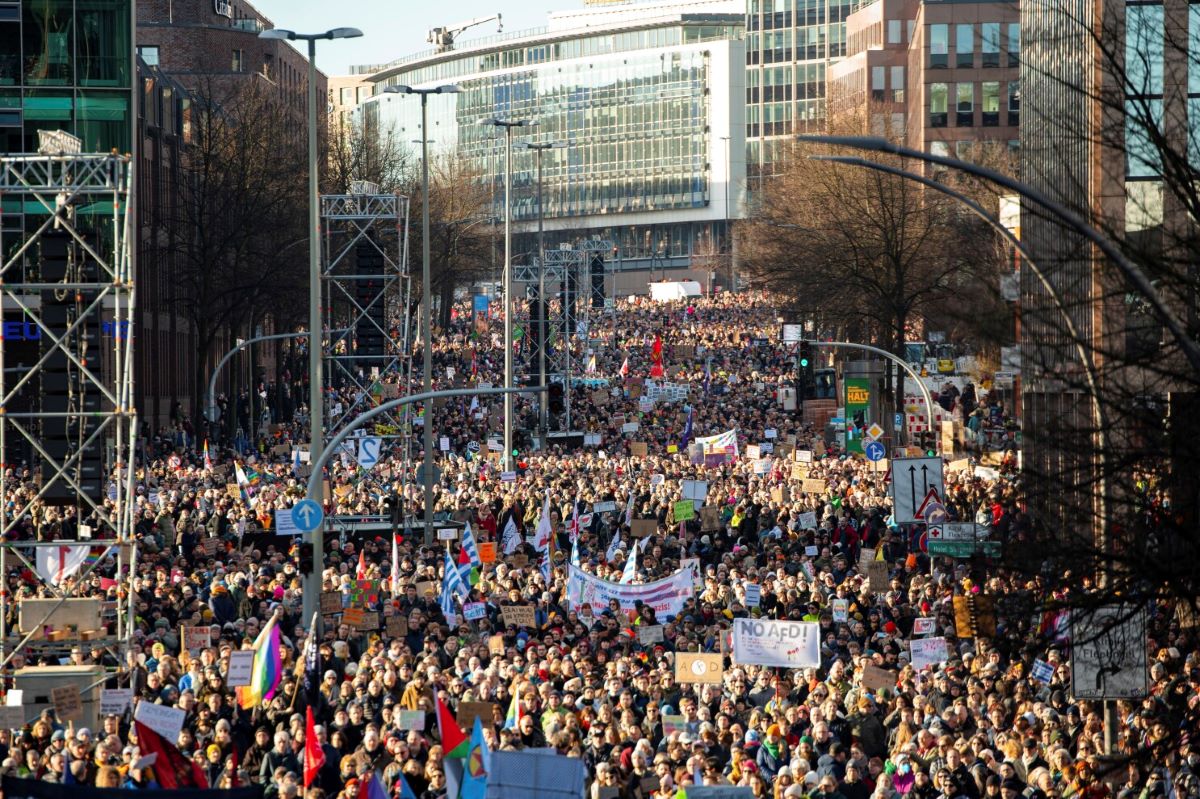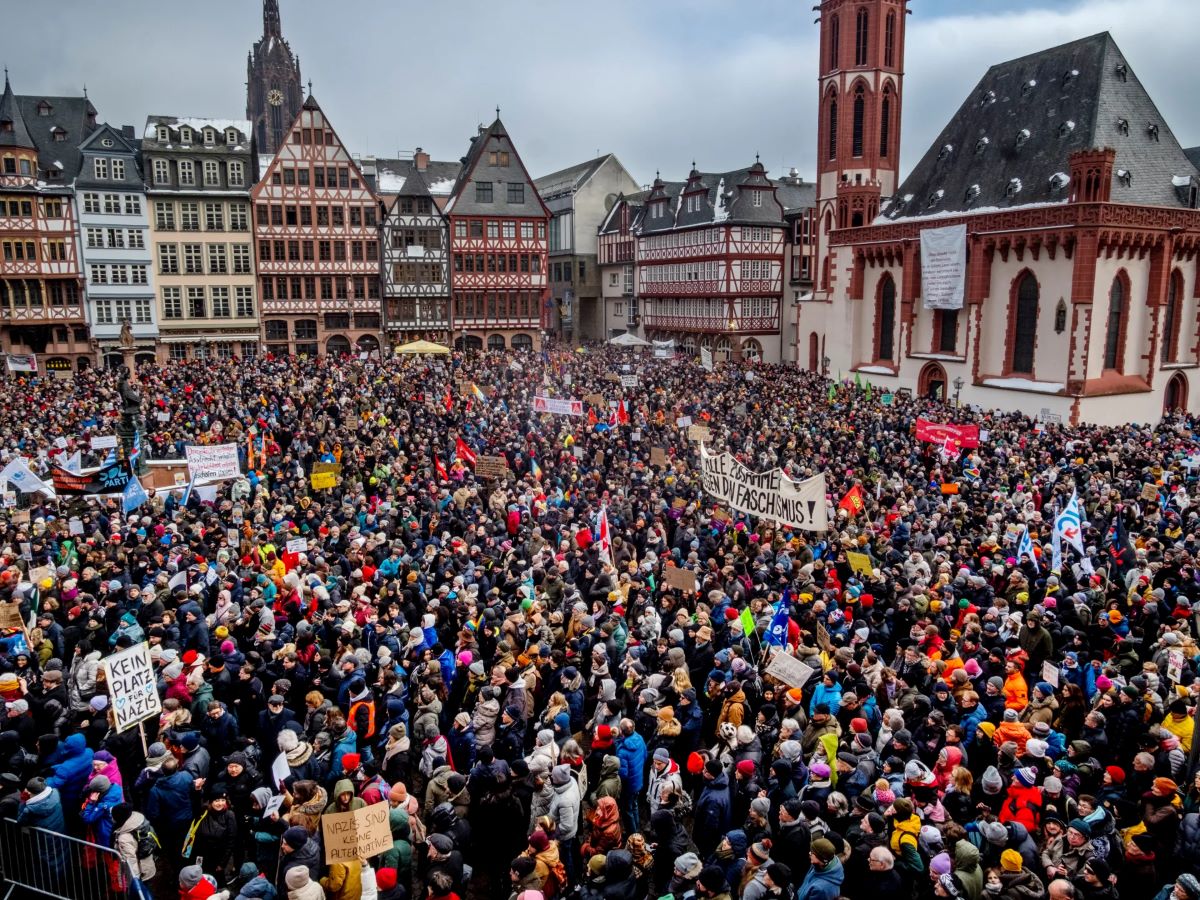Thousands of demonstrators protested against the far-right Alternative for Germany (AfD) party’s convention on Saturday, blocking roads and delaying the event’s start as political parties launched campaigns for Germany’s upcoming election.
A significant police presence was deployed in Riesa, located in Saxony, a region known as an AfD stronghold.
Officers were tasked with clearing protesters from the streets, but the two-day convention still began over two hours late due to blockades delaying many delegates.
During the convention, AfD formally nominated co-leader Alice Weidel as its chancellor candidate by acclamation.
Weidel, who was among those delayed by the protests, expressed gratitude to attendees, saying, “Thank you for defying the left-wing mob and getting here.”
Recent polls show AfD in second place ahead of the February 23 election, with approximately 20% support.
However, Weidel’s chances of becoming Germany’s leader are minimal as other parties refuse to collaborate with AfD.
The mainstream conservative Union bloc, polling at around 30%, leads the race, with its candidate Friedrich Merz seen as the favorite to become the next chancellor.
Weidel criticized the Union bloc as a “party of fraudsters” and encouraged voters to back AfD, calling it “the original.” She advocated for closing Germany’s borders to undocumented migrants and implementing large-scale deportations of asylum-seekers. Weidel embraced the term “remigration,” despite its politically charged nature.

She also pledged to reactivate the Nord Stream gas pipeline, which was damaged in 2022 explosions after Russia halted gas supplies to Germany. Her call to dismantle all wind turbines, referring to them as “windmills of shame,” received loud applause from the audience.
Meanwhile, in Hamburg, Merz emphasized the Union bloc’s promise of “fundamental change” following the collapse of Chancellor Olaf Scholz’s coalition government.
Merz said he aims to lead “a government that stops arguing; a government that draws up reliable laws that also endure in the longer term,” fostering a stable environment for both domestic and international investors.
Scholz, whose Social Democrats are polling at 14-17%, faces an uphill battle for a comeback victory. His coalition government dissolved in November after he fired the finance minister over disagreements about revitalizing the economy, prompting an early election.
Speaking at a party convention in Berlin, Scholz admitted, “Maybe I should also have ended the coalition earlier.” However, he urged supporters to focus on the future, declaring, “Let’s fight.” The convention formally confirmed Scholz as the Social Democrats’ candidate for chancellor.
Scholz criticized Merz’s Union bloc, accusing it of lacking serious solutions for Germany’s challenges and offering “expensive promises for the absolute top earners” that would “rip a gigantic crater in our budget.”
On foreign policy, Scholz reiterated his commitment to supporting Ukraine in its war with Russia, maintaining Germany’s position as a leading weapons supplier while resisting calls to send Taurus long-range cruise missiles. He emphasized his “steadfast and prudent” approach to international issues.
Scholz also pushed back against President-elect Donald Trump’s recent remarks about Greenland and other territories, stating, “The principle of the inviolability of borders applies to every country, whether it lies to the east of us or the west; every state must keep to this principle, whether it is a small state or a very big and powerful one.”
Merz responded critically, stating, “Public finger-pointing from Germany has never made an impression in America, and as a rule has achieved the opposite.”


